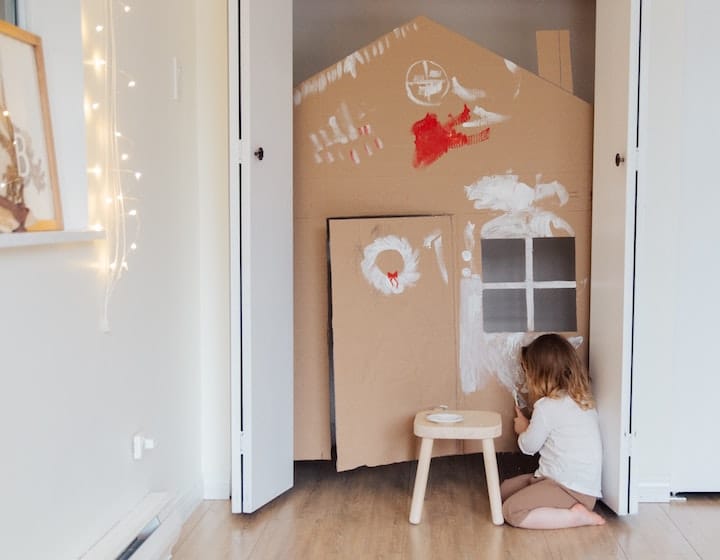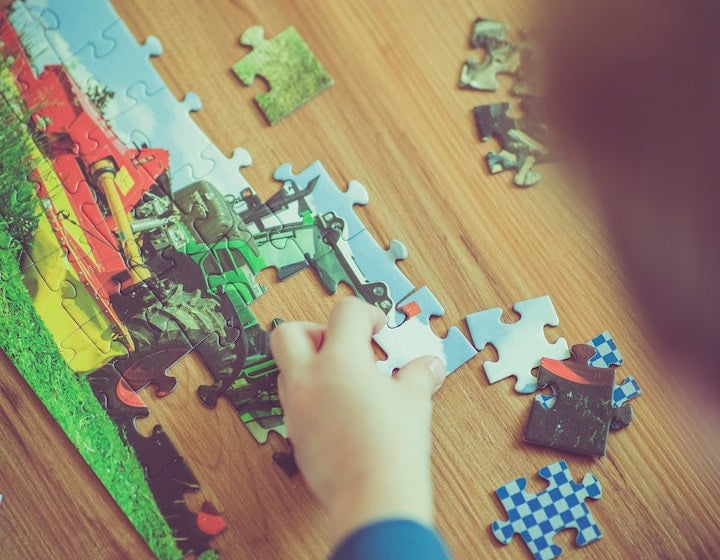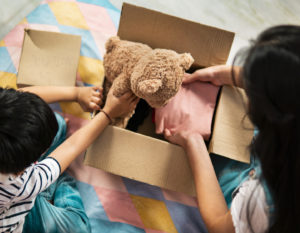
Your children’s own company is more valuable than you might think.
I was having dinner with a friend and we talked about how we can be bored among the company of many but can feel content when seemingly alone (though others might assume that we must be bored). Maybe first we need to reconsider what boredom is in a world that is fixated on productivity and connectivity. and then explore what the benefits of boredom might be.
The psychologist and paediatrician Donald Winnicott suggested that the capacity to be alone is a sign of emotional maturity and secure attachment. This idea might be taking on more significance in our modern world, especially during the time of social distancing, when both work and school put a lot of emphasis on teamwork and on staying socially connected via social media. In the book Bored and Brilliant, Manoush Zomorodi concludes that boredom is actually crucial for creativity, productivity, preventing burnout and promoting wellbeing.
I have often seen parents or helpers in a coffee shop, restaurant or while shopping giving their toddler an iPad or their phone, to distract them so that they can get on with their own tasks. It makes me wonder what will happen to these toddlers when they are older if they are not able to tolerate any length of idleness and need to be entertained non-stop. This often means that they are missing out on their immediate environment or the social interaction around them, not to mention the beauty of their surroundings.
Read more: Raising Resilient Hong Kong Kids By Teaching Them Happiness

When approached responsibly, social media and gaming have many merits. We have to remember though that children are not only vulnerable, they are also impressionable, as they are still developing a sense of who they are. I have seen children as young as eight inundated by the unrealistic standards of social media, the need to accumulate “likes” and not to miss out. This not only creates stress but also robs the child of the ability to develop a genuine sense of who they are. Maybe I am old-fashioned, but the hypersexualised culture that has normalised sexual behaviour worries me. Even more so when the children and teenagers spending so much time on social media have neither developed the necessary communication skills nor the ability to negotiate the new sexual norms that govern their lives.
In How to be Alone, Sara Maitland suggests that solitude in a safe environment may be one of the greatest gifts we can give to our children, so they can slow down and reflect.
I often wonder if we could teach and model the appreciation of idleness, our ability to slow down and be reflective and not reactive, having the capacity to recall joyful memories, to ground ourselves without relying on gadgets or physical objects, maybe our children would be better able to cope with the stress of growing up in a chaotic world. After all, we can’t always be there for our children but if we can teach them how to be self-sufficient in finding strength from within, to reflect on who they are, they might be better able to handle the drama of growing up and withstand the peer pressure that is now bombarding them via their devices.
Read more: Expert Advice: How Will Social Distancing Affect My Child?

Maybe if us parents can purposefully set aside some alone time for our kids, to reflect or to engage with an active imagination, we can be better able to accept who we are and think creatively. Demonstrating this to our children consistently and explicitly would also serve as a good role model. After all, children copy what they see, not what we tell them they should be doing.
Boredom or idleness can be an immensely positive thing amid the chaos of uncertainty and isolation of our modern world. The ability to tolerate boredom and maybe even enjoy the occasional spell of solitude may be the best life skill we can teach our children. As parents, instead of handing our child an iPad or our phone, maybe we can plan ahead and use those moments to help them develop a positive mindset and the right attitude and let them learn to able to cope with boredom in ways that suit their temperament and needs.
The Benefits Of Boredom: Let The Mind Explore
There are many solitary pleasures that can stimulate children’s imagination without demanding your full attention, such as jigsaw puzzles for youngsters and older children (I prefer the magnetic ones; when my son was young it was easy to put one in my bag and he could make many different pictures). Another suggestion would be mindful colouring (this is also a great idea for Mamas as well!), picking up an educational toy, suitable for your child’s age, or free-play time. You can also let children get creative with easy art activities at home.
Alternatively, you can learn from Charles Darwin and develop your own “thinking path”, a short walk outside to let your mind wander freely and connect with nature. Not only does this offer respite from a sedentary lifestyle, especially when we are spending more time in front of our computers, but it can also create a sense of being away.
Furthermore, maybe create a reading list for a mental holiday and allow yourself to use your active imagination to travel afar together with your child, or let them simply explore their own imagination as they wish.
Read more: Children’s Books: Best Modern Fairytales To Empower Sassy Girls And Boys
 View All
View All











 View All
View All





 View All
View All


 View All
View All















